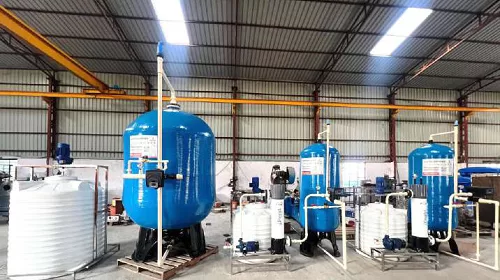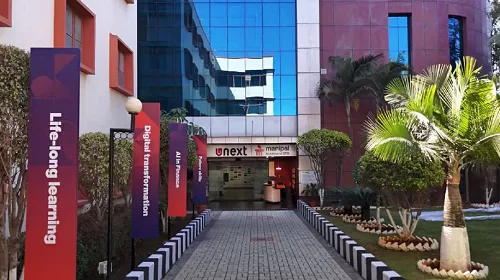India’s rapid population growth and urbanization have significantly increased consumption patterns, leading to rapid industrialization. This industrial expansion has driven economic growth, job creation, and infrastructure development, positioning India as a global manufacturing and economic hub. However, it has also led to a sharp rise in industrial wastewater generation, posing a severe threat to India’s already stressed water resources.
India is home to nearly 18% of the global population but has access to only 4% of the world’s freshwater resources, making it one of the most water-stressed nations. With per capita water availability dropping from 5,177 cubic meters in 1951 to around 1,486 cubic meters in 2021, India is approaching the water scarcity threshold of 1,000 cubic meters per person, aggravating the stress. Addressing these challenges through sustainable water management, wastewater treatment, and conservation measures is critical to ensuring long-term water security.
Industries such as textiles, pharmaceuticals, chemicals, leather, and manufacturing discharge large quantities of wastewater loaded with toxic chemicals, heavy metals, and organic pollutants. If not treated effectively, these contaminants can pollute rivers, lakes, and groundwater, endangering aquatic ecosystems and human health. With India’s freshwater sources declining due to overuse and climate change impact, the improper disposal of industrial wastewater further aggravates the water quality issues.
While traditional wastewater treatment methods are widely implemented, they come with inherent challenges such as high energy consumption, reliance on chemical treatments, and hazardous sludge generation. These factors not only increase operational costs for industries but also contribute to environmental challenges. With increasing concerns over water scarcity and pollution, there is an urgent need for sustainable and innovative wastewater treatment solutions that minimize ecological impact while ensuring compliance with environmental regulations set by the Central Pollution Control Board (CPCB) and state authorities.
KEY STRATEGY FOR SUSTAINABLE WASTEWATER TREATMENT
With growing water scarcity and pollution in India, adopting sustainable wastewater treatment is crucial. It helps protect the environment, conserve water, and meet regulatory standards. Advanced treatment technologies, efficient reuse systems, and strict pollution control measures can ensure a cleaner, more sustainable future.
Key strategies industries can implement for efficient and sustainable wastewater management.
EMBRACING CIRCULAR ECONOMY PRINCIPLE
A circular economy approach aims to minimize waste, maximize resource efficiency, and promote sustainability. In wastewater treatment, this means reducing water wastage, reusing treated water, and recovering valuable by-products to create a more efficient and sustainable system.
- Industrial water reuse: Treated wastewater can be reused in industrial operations such as cooling systems, boiler feed water, and also for irrigation purposes. This reduces dependency on freshwater sources and minimizes wastewater discharge, lowering environmental impact and operational costs of the industries.
- Resource Recovery: Wastewater treatment processes can also recover valuable materials, such as caustic soda, sulphates or chlorides, polyvinyl alcohol etc. For example, anaerobic digestion produces biogas, which can be used as an energy source. Advanced filtration and treatment processes extract nutrients like phosphorus and nitrogen, which can be used as fertilizers.
ADOPTION OF ADVANCED TREATMENT TECHNOLOGIES
Traditional wastewater treatment methods, often consume large amounts of energy and chemicals. The adoption of advanced and eco-friendly technologies can significantly improve efficiency and sustainability. By integrating these technologies, industries can achieve higher treatment efficiency, lower operational costs, and minimize environmental impact.
Key technologies include:
- Zero Liquid Discharge (ZLD): A closed-loop system that ensures no liquid waste is discharged, promoting maximum water recovery and resource efficiency.
- Membrane Bioreactors (MBR): A combination of biological treatment and membrane filtration, providing high-quality treated water suitable for reuse.
- Electrocoagulation (EC): Uses electrical current to remove contaminants, reducing chemical dependency.
- Bioremediation and Constructed Wetlands: Natural and biological methods using microbes and plants to break down pollutants in wastewater.
ENERGY-EFFICIENT WASTEWATER TREATMENT
Energy consumption in wastewater treatment plants is a major concern. Adopting energy-efficient processes and utilizing renewable energy sources can significantly reduce operational costs and carbon footprints. By implementing these solutions, industries can achieve cost savings while minimizing greenhouse gas emissions.
- Anaerobic digestion of organic waste produces biogas, which can be used for power generation.
- Solar-powered wastewater treatment plant help reduce dependency on conventional energy.
- High-efficiency aeration systems, such as diffused aeration helps reducing electricity consumption while improving treatment effectiveness.
DIGITALIZATION AND SMART MONITORING
The use of Industry 4.0 technologies like IoT, AI, and cloud-based monitoring systems can enhance efficiency and transparency in wastewater treatment. Digital transformation in wastewater treatment ensures better resource management, operational efficiency, and regulatory compliance.
- AI-driven analytics can analyze treatment data to predict maintenance needs, reducing downtime, optimize performance, and reduce energy consumption and operational costs. By implementing predictive maintenance strategies, industries can prevent costly downtime and avoid environmental damage.
- Automated process control systems optimize chemical usage and treatment processes.
- Real-time monitoring: Advanced sensors and Internet of Things (IoT) devices can monitor water quality parameters, provide real-time data such as pH and pollutant levels for better efficiency. This data allows for more precise control of treatment processes, minimizing waste and energy use.
COMPLIANCE WITH REGULATORY FRAMEWORKS
The Central Pollution Control Board (CPCB) and state pollution control boards enforce strict regulations on wastewater discharge by the industries. Ensuring compliance with these norms is critical to avoid penalties and protect water bodies. Strict enforcement of regulatory policies will drive industries to adopt sustainable wastewater treatment practices.
- Regular monitoring and reporting of effluent quality is essential to meet discharge standards.
- Installation of real-time water quality monitoring systems helps industries stay compliant and proactive in addressing pollution challenges.
- Implementation of Common Effluent Treatment Plants (CETPs) for small and medium enterprises (SMEs) can ensure collective compliance and cost sharing.
SAHARA INDUSTRY’S ADVANCED INDUSTRIAL WASTEWATER TREATMENT SOLUTIONS
Sahara Industry is at the forefront of industrial wastewater treatment, implementing advanced treatment technologies to address complex contaminants, ensure regulatory compliance, and promote sustainable water management. The company’s cutting-edge solutions focus on water reuse, resource recovery, and minimizing environmental impact across various industries, including pharmaceuticals, chemicals, textiles, food & beverage, and manufacturing.
The compact industrial wastewater treatment system introduced by Sahara Industry offers a range of key benefits and capabilities, making it an ideal solution for industries looking to optimize wastewater management while maintaining compliance with environmental regulations.
One of its standout features is its space-saving and modular design, which requires minimal footprint, making it highly suitable for industries with space constraints. The system can be easily integrated into existing infrastructure or installed as a standalone unit, ensuring flexibility in deployment. Additionally, it delivers high-efficiency treatment by incorporating advanced membrane filtration technologies such as Reverse Osmosis (RO), Ultrafiltration (UF), Advanced Oxidation, and biological treatment processes. These technologies effectively remove high levels of COD (Chemical Oxygen Demand), BOD (Biochemical Oxygen Demand), TDS (Total Dissolved Solids), and heavy metals from industrial effluents, ensuring compliance with stringent wastewater discharge norms.
A major advantage of this system is its Zero Liquid Discharge (ZLD) capability, which enables industries to recycle and reuse treated water for various applications, including industrial processes, cooling systems, and non-potable purposes. By minimizing wastewater discharge, the system helps industries reduce their freshwater dependency and meet pollution control board (PCB) regulations. The system is designed for automated and energy-efficient operations, featuring IoT-enabled monitoring for realtime performance tracking and automated controls. This ensures seamless operation while optimizing power consumption and operational costs.
Another critical benefit is its customizability, making it suitable for a wide range of industries, including pharmaceuticals, food processing, textiles, chemicals, and manufacturing. The system is capable of handling variable wastewater loads while maintaining consistent treatment efficiency. Sahara Industry’s compact wastewater treatment system provides an efficient, sustainable, and cost-effective solution for industries seeking to improve wastewater treatment, reduce environmental impact, and achieve long-term water conservation goals.
WAY FORWARD
In India, sustainable industrial wastewater treatment is a growing challenge that demands continuous innovation and collaboration. With increasing industrialization and stringent environmental regulations, industries must adopt advanced technologies and best practices to minimize their ecological footprint while ensuring efficient wastewater management.
With its expertise in membrane filtration, zero liquid discharge, oxidation processes, biological treatments, and resource recovery, Sahara Industry plays a vital role in transforming industrial wastewater management in India. By implementing these and resource recovery, Sahara Industry plays a vital role in transforming industrial wastewater management in India. By implementing these advanced technologies, the company is helping industries achieve water sustainability, regulatory compliance, and cost-effective operations while contributing to a cleaner environment.
Industries must lead the way in integrating smart and sustainable wastewater management strategies to balance economic growth with environmental responsibility. By adopting advanced treatment technologies, promoting water reuse, improving energy efficiency, ensuring regulatory compliance, leveraging digital solutions, and encouraging industry-government collaboration, India’s industrial units can achieve a cleaner, greener, and water-secure future.
By Mohammed Abdul Rahman, CEO, Sahara Industry





